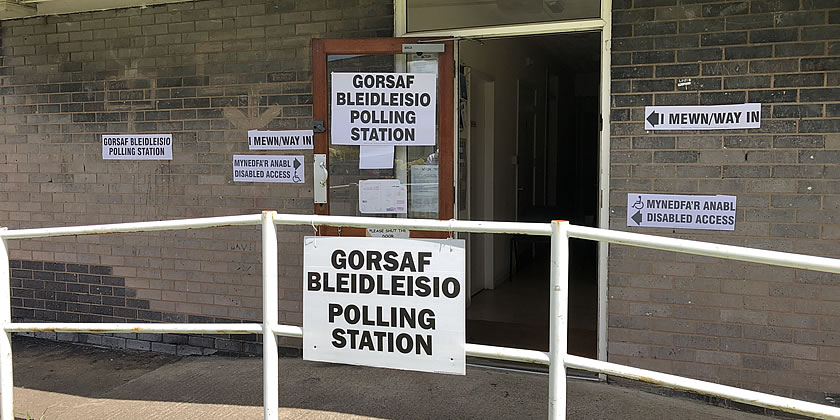Senedd Committee: ‘Significant reservations’ about new proposed voting system

The Welsh Government’s proposals to change the voting system by the next Senedd election could see voter choice being trumped by political party influence, according to a Senedd Committee.
A majority of the Reform Bill Committee, who are scrutinising the plans put forward by the Welsh Government, agree with the general principles of the Bill; but the whole Committee is united in concerns that the closed list voting system could reduce voter choice.
Voting system
The current closed list proposals would mean that voters would only be able to choose between specific candidates standing for a political party, or between parties and independent candidates.
The Committee heard evidence from numerous experts that this would reduce the choice available to voters and risk voter dissatisfaction.
While the Committee stopped short of recommending an alternative voting system, it did see merits in open or flexible lists or the Single Transferable Vote (STV) system.
Open or flexible lists allow political parties to prioritise their candidates, but voters are still able to choose which specific candidate on a party’s list they want to support; whereas STV allows voters to rank candidates in their own preferred order.
The Committee’s report urges all Members of the Senedd to work together to reach agreement on amendments to the proposed voting system.
David Rees, MS, Chair of the Reform Bill Committee, said, “The Reform Bill Committee has spent the last few months carefully scrutinising proposals for some of the most significant changes to Welsh democracy since devolution.
“We are united in our concerns about the impact of the voting system being put forward by the Welsh Government on the level of voters’ ability to choose who represents them. Getting the electoral system right is fundamental to the health of democracy in Wales, and we have significant reservations about whether closed list elections represent a positive step forward.
“If the Bill is voted through its first stage by the Senedd at the end of the month, we’re urging all political parties to work together to ensure the electoral system in the Bill provides greater voter choice and improved accountability for future Members to their electorates.”
The report calls for a public information campaign about the electoral reforms, particularly the new electoral system, if any changes to the current system are introduced.
Expanding the Senedd
The Senedd Cymru (Members and Elections) Bill also proposes to increase the number of Members from 60 to 96. Although most of the Committee were content with this proposal, one Member did not believe any increase was justified.
Evidence given to the Committee argued that the Senedd’s responsibilities in areas such as transport, economic development, rail and taxation had increased since 1999 and that more Members are required to provide a good level of scrutiny.
The Committee heard that more representatives would improve the institution’s capacity and afford greater opportunity for Members of the Senedd to specialise and develop expertise.
The Bill will now be debated in the Senedd on 30 January, where Members will vote on whether it will proceed to the next stage of scrutiny.
David Rees MS, continued, “Although the Committee is not unanimous on the issue of more Members, most of the Committee’s members are persuaded by the evidence that reform is needed and that a larger Senedd will be better able to fulfil its responsibilities to the people of Wales, now and in the future.”
Cost of expansion
The Senedd’s Finance Committee has scrutinised the costs associated with expanding the Senedd since the Bill was introduced last year.
Although the Finance Committee is broadly content with the costings and savings that have been laid out, their report finds that there needs to be better modelling to try and estimate the specific costs and potential savings of the reforms especially considering changes to constituencies could increase Members’ travel or accommodation spend.
The Committee is also concerned about the Welsh Government’s assertion that increasing the number of Ministers wouldn’t lead to more staff costs and is calling for more evidence to back up the claim.
Spotted something? Got a story? Email: [email protected]
Latest News
